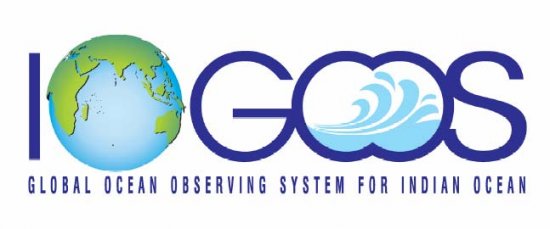ESSO - Indian National Centre for Ocean Information Services
(An Autonomous Body under the Ministry of Earth Sciences, Govt. of India)
INDIAN OCEAN PANEL
- About
- Terms Of Reference
- Activities
- Reports
- Members
- IndOOS
About
GOOS (through Indian Ocean GOOS and the Perth Office of the IOC) and CLIVAR have established the Indian Ocean Panel initially charged to develop, coordinate and implement a plan for sustained ocean observations of the Indian Ocean for climate research and ocean state estimation
The observations will support research on the key climate phenomena of the Indian Ocean region:
- Intraseasonal oscillations and variability
- Seasonal monsoon variability
- Indian Ocean zonal dipole mode and its relation to ENSO
- Decadal warming trends
- Shallow overturning cells
- Deep meridional overturning
- Carbon and Biogeochemistry
- Indonesian Through-flow
- Global ocean linkages

Terms of Reference
The need for high-quality ocean observations is shared by research (CLIVAR) and ocean applications and services (GOOS) and there is a shared conviction that, together, the ocean community should endeavour to establish the basis for a comprehensive ocean observation network and oversee the staged implementation of a sustainable ocean observing system for the Indian Ocean. It is therefore agreed that a Panel will be established and supported by CLIVAR and GOOS (through Indian Ocean GOOS and the Perth Office of the IOC) with the following Terms of Reference.
Provide scientific and technical oversight for a sustained ocean observing system for the Indian Ocean and Indonesian Throughflow in order to provide ocean observations needed for climate variability research and to underpin operational ocean applications and services relevant to the region, particularly with regard to ocean-state estimation and climate prediction.
Develop, coordinate and implement a plan for a sustained ocean observing system for the Indian Ocean to (a) meet the common requirement of CLIVAR research themes and regional initiatives, particularly those identified by AAMP and VACS and the CLIVAR modelling panels, (b) satisfy the common requirements of GOOS and its modules, and (c) coordinate implementation activities in collaboration with relevant regional and global bodies and IOGOOS and JCOMM in particular.
Liaise with relevant research Panels of CLIVAR and implementation Panels of GOOS and JCOMM and provide a focal point for coordination of ocean observing networks in the region.
Report to the CLIVAR SSG through its AAMP and to GOOS through the IOC Perth Office.
Activities
- 3rd Session of the Indian Ocean Panel, Honolulu,Hawaii USA, 27 February - 2 march 2006
- 2nd Session of the Indian Ocean Panel, Hobart, Australia, 30 March - 2 April 2005
- Indian Ocean Modelling Workshop, 29 Nov - 3 Dec 2004, IPRC, Hawaii was organized by AAMP/IOP.
- Development of an Implementation Plan for observing the Indian Ocean is underway.
- 1st Session of the Indian Ocean Panel, Pune India, 18-20 Feb 2004, by invitation
Reports
- Report from the 1st Session of the Indian Ocean Panel
- Presentations at the 1st Indian Ocean Panel meeting, Pune India, 18-20 Feb 2004, can be downloaded through the agenda
- Brief report of highlevel meeting on Indian Ocean Panel held at Bali,Indonesia, August 9-12,2005
- Report on Understanding the Role of the Indian Ocean in the climate system-Implementation plan for sustained observations
- Report on Status of Implementation planning by Schott Meyers

Members
|





